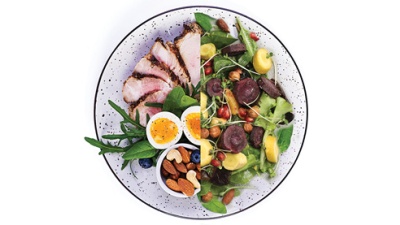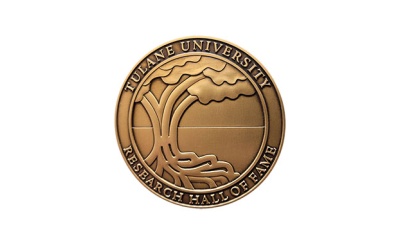Topic: research

Carbon Footprints
A new study published in The American Journal of Clinical Nutrition compared popular diets on both nutritional quality and environmental impact and found that the keto and paleo diets, as eaten by American adults, scored among the lowest on overall nutrition quality and were among the highest on carbon emissions.

Health Disparities
Three years after the COVID-19 pandemic exposed racial and ethnic health disparities nationwide, those disparities continue to exist in American communities of color.

Synthetic Skin For Mosquito Study
A research partnership between Tulane and Rice universities has developed gelatin-like patches of fake skin — called hydrogels — to assist in the study of how mosquitoes transmit deadly diseases and which repellents are most effective. The hydrogels eliminate the need for human and animal testing.https://tulane.it/synthetic-skin-mosquito-study

Pneumonia Vaccine
School of Medicine researchers Elizabeth Norton and Dr. Jay Kolls have developed a nasal spray vaccine to thwart antibiotic-resistant Klebsiella pneumoniae, a leading cause of bacterial pneumonia. They were awarded a National Institute of Allergy and Infectious Diseases contract worth up to $16 million to bring a nasal spray pneumonia vaccine to Phase 1 clinical trial.https://tulane.it/pneumonia-vaccine

Breast Cancer Screenings
A study led by Yixue Shao, health policy and management researcher at the School of Public Health and Tropical Medicine, examined data from nearly 45,000 female Medicaid beneficiaries in Louisiana and found that breast cancer screening rates decreased to nearly zero in April 2020, during the first wave of the COVID-19 pandemic. Rates fully recovered by mid-2021.https://tulane.it/breast-cancer-screenings

Chagas Vaccine
Tulane researchers at the School of Public Health and Tropical Medicine and the Tulane National Primate Research Center have developed a Chagas vaccine that safely protects heart function in nonhuman primates. The development is a critical step toward human clinical trials. There is currently no available vaccine for Chagas.https://tulane.it/chagas-vaccine

Dementia Risk Linked To Colds
Getting sick often may impact how quickly the brain ages and increase the risk of dementia or other forms of cognitive decline, according to a study led by Elizabeth Engler-Chiurazzi, assistant professor of neurosurgery and behavioral neuroscientist at the School of Medicine. The study found that repeated, intermittent experiences with moderate inflammation, such as that caused by the flu or a common cold, caused impaired cognition.https://tulane.it/dementia-risk-colds

Oral Health and HIV
Researchers at the Tulane National Primate Research Center will examine how chronic oral infections affect the severity of HIV infection and the efficacy of antiretroviral therapies used to treat HIV. A $1.9 million grant from the National Institutes of Health will fund this research, which will be led by Prasun Datta, associate professor of microbiology and immunology.https://tulane.it/oral-health-hiv

Research, Scholarship & Artistic Achievement Second Annual Awards
Tulane’s Research, Scholarship and Artistic Achievement Awards were presented for the second year on Nov. 4, 2022.

Brain Institute Leader
Award-winning neuroscientist Matthew Dalva has been appointed as director of the Tulane Brain Institute and the university’s newest Presidential Chair. Dalva, whose research focuses on how the connections of the brain form and are changed by experience, will succeed Professor Jill Daniel, who has served as director of the institute since its inception in 2016.https://tulane.it/brain-institute-leader








































